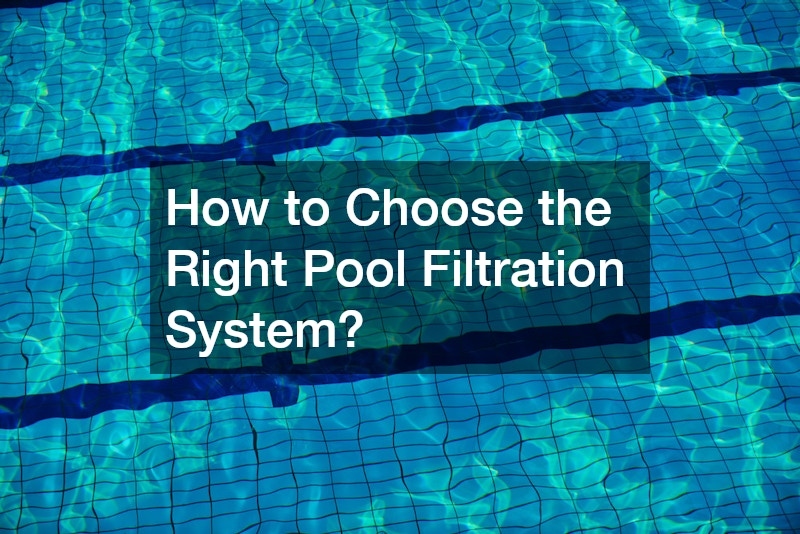Maintaining clean and safe pool water is critical to ensuring that swimming remains a healthy and enjoyable activity. A pool water filtration system is an essential investment for pool owners, as it plays a key role in keeping the water pristine.
Without a filtration system, pool water can quickly become a breeding ground for bacteria and algae, posing significant risks to swimmers. By installing an effective filtration system, pool owners can significantly reduce the chances of health-related problems.
Moreover, clean pool water enhances the overall swimming experience, making it more pleasant for users. Ensuring that water quality is maintained at high standards is both a responsibility and a benefit to any pool owner.
What is a Pool Water Filtration System?
Understanding the Basics
A pool water filtration system is an integrated setup designed to remove contaminants and impurities from the water, ensuring it remains clear and safe. The primary components of a typical system include a pump, a filter, and various circulation lines connected to the pool.
Each part of the system has a specific role, with the pump circulating water to the filter and the filter trapping debris and particles. This continuous process helps maintain a balanced pH level and reduces biochemical oxygen demand, ensuring optimal water quality.
Overall, these components work together to create a continuous cycle of filtration that consistently improves water quality. The effectiveness of a filtration system can significantly affect the ease of pool maintenance.
The Mechanism Behind Filtration
The filtration system operates by drawing water from the pool and passing it through the filter medium, where impurities are captured. This process effectively removes particles such as dirt, organic debris, and microorganisms, preventing cloudy or hazardous water conditions.
The mechanism depends largely on the type of filter used; sand, cartridge, and diatomaceous earth filters each have different methods and efficiencies of removing contaminants. Regardless of the type, the objective is to ensure that only clean, clear water is recirculated back into the pool.
As a result, the filtration system is pivotal in maintaining a clean swimming environment and extending the life of the pool’s infrastructure. This not only contributes to water safety but also to the overall enjoyment of pool users.
Benefits of Investing in a Filtration System
Health and Safety Advantages
A significant benefit of having a pool water filtration system is its capacity to promote a healthier swimming environment. By continuously filtering out harmful bacteria and pathogens, the risk of waterborne illnesses is significantly reduced.
This also helps prevent the quick transmission of infections among individuals using the pool frequently. Consequently, pool owners can provide a safer swimming experience to their family and guests.
Not only does a filtration system enhance health outcomes, but it also contributes to the simplicity of pool maintenance routines. Proper filtration reduces the need for excessive chemical usage to maintain water quality standards.
Cost Efficiency Over Time
Investing in a pool water filtration system can lead to considerable cost savings over time. While the initial expenditure may seem substantial, the long-term benefits, including reduced spending on chemical treatments, often outweigh the upfront costs.
Additionally, a well-maintained filtration system can decrease the frequency of repairs needed for the pool. This ensures that the structure and equipment have a longer lifespan, offering additional savings on replacement parts.
Efficient filtration systems also conserve water by maintaining cleaner water, thus reducing evaporation and the need for frequent refills. Over time, these cumulative fiscal benefits make filtration systems a smart investment for any pool owner.
How to Choose the Right Pool Filtration System?
Key Factors to Consider
Choosing the right pool filtration system requires careful evaluation of specific factors. Pool size is a crucial determinant, as the system needs to be adequately sized to handle the volume of water efficiently.
Budget considerations are also important, as different systems vary widely in cost and maintenance requirements. Moreover, opting for a system with less maintenance can be beneficial for those looking to cut down on routine operational tasks.
By assessing these factors strategically, pool owners can ensure that their chosen system provides optimal performance. An informed decision leads to better water quality management and fewer headaches down the line.
Types of Filtration Systems
There are several types of pool filtration systems on the market, each offering its unique advantages. Sand filters are among the most common, as they are cost-effective and easy to maintain.
Cartridge filters are known for their high efficiency, capturing smaller particles and reducing water waste. Diatomaceous earth filters provide superior filtration by utilizing fossilized algae, but require more complex maintenance.
Understanding the specific needs of a pool alongside the advantages of each filtration type can make the selection process easier for pool owners. It ensures the chosen system aligns with both performance expectations and personal preferences.

